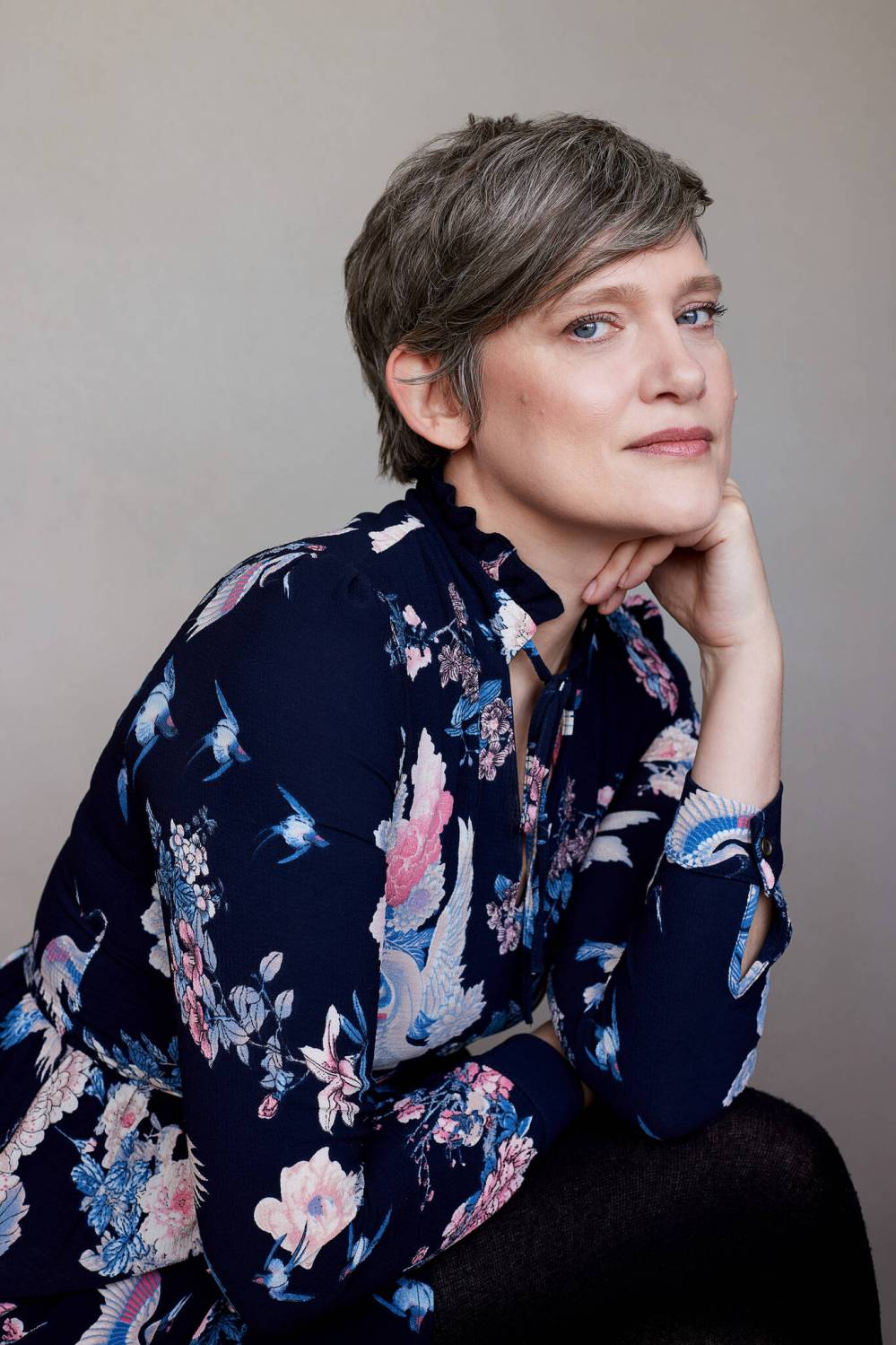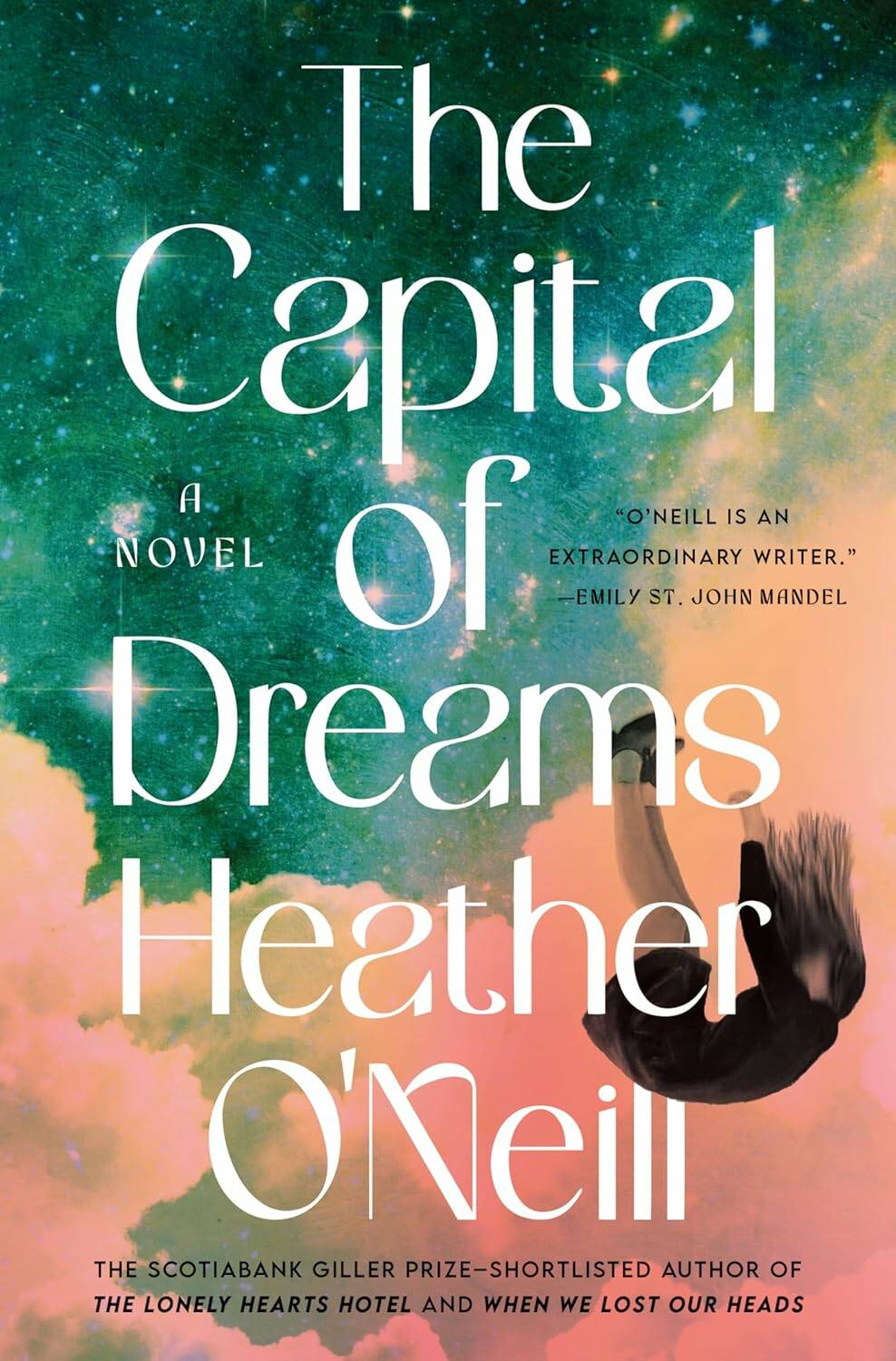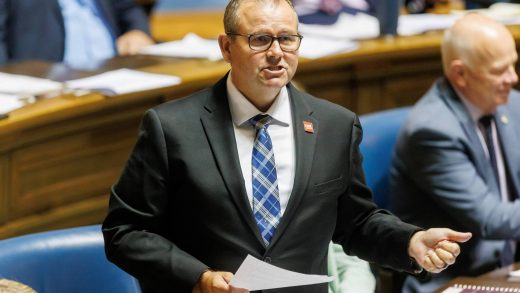
Once upon a time, Heather O’Neill wrote a fairy tale about Sofia, a teenage girl in a fictional, occupied European country, as she and her travelling companion, a talking goose, walked the countryside in hopes of retrieving her mother’s lost manuscript, which would hopefully save their homeland.
The result is The Capital of Dreams, the Montreal-based O’Neill’s latest novel, published by HarperCollins. O’Neill visits McNally Robinson Booksellers’ Grant Park location Thursday at 7 p.m. as part of her book tour, where she’ll be joined in conversation by David A. Robertson.
With a half-dozen books under her belt — including her breakout 2006 novel Lullabies for Little Criminals, 2017’s The Lonely Hearts Hotel and her most recent novel, 2022’s When We Lost Our Heads — O’Neill, 50, has warmed to touring behind her work.
Julie Artacho photo Heather O’Neill merges fairy tale and war story in her new novel.
“By the time your fifth or sixth book comes out, you’re like a performer. It’s actually something I’ve really learned to love,” she says in advance of her Winnipeg visit. “I probably wouldn’t have known it was something I was good at, going out and doing this, the storytelling part of it — I just find it so rewarding and fun.”
The notion to merge fairy tale and war story originated with her father’s and uncles’ stories about their experiences in the Second World War.
“They had all gone over; my dad had got a fake birth certificate when he was a teenager so he could go. They’d always tell me fairy tales about it, like some strange fairy who had climbed out of a tree, or some troll who would come out of the woods,” O’Neill says.
“My dad had this one story of being unable to escape a goose that had fallen in love with him,” she adds, laughing.
O’Neill, who won the Writers’ Trust Fellowship in 2019 for her body of work, began writing The Capital of Dreams in earnest during a 2022 writing residency in Germany, where the fairy tale-meets-war story crystallized.
“At one point, I took this trip into Poland. I took all these trains through the Black Forest, and I was like, ‘Oh, I understand Grimm’s fairy tales more; I understand my dad’s fairy tales even more. And when you go to that part of Germany, and then Poland, the war is so interwoven into the fabric of things and so are Grimm’s fairy tales — they seem very present,” she says
The nation of Elysia, the fictional, mystical European country under siege in The Capital of Dreams, sits somewhere in that corner of Europe at some point in time after the First World War. It was a subsequent trip to Palestine in 2023 with Palestinian-Canadian author Yara El-Ghadban that moved O’Neill’s writing towards exploring notions of genocide.
“I’m writing about this country that’s occupied and thought it would be interesting to see a country that’s under occupation. We started going to these different little cultural spots where beautiful things were happening. Like we went to a children’s theatre. We went to see this woman who read children’s books to incarcerated kids. We went to the (Palestinian poet) Mahmud Darwish museum, which was really interesting for me to see,” O’Neill says.
“In the ’60s, Palestine was rediscovering itself through its literature. This group of writers were like, ‘We’ll just write beautiful things, and then that will prove that Palestine exists.’”
In The Capital of Dreams, the artists and thinkers, along with women and children, are among the first to be targeted by the invading Enemy. Among those artists is Clara Bottom, Sofia’s mother, who dashes off a manuscript and gives it to Sofia in the hopes she can ferry it out of the country and into the hands of someone who can read about Elysians, their culture and their struggles under occupation.
After losing the manuscript and determining she must get it back, Sofia, the Goose and the other children in The Capital of Dreams roam the countryside, navigating and processing the trauma that comes with war.
Clara is one of O’Neill’s first forays into writing an adult mother character.
“When I handed in The Lonely Hearts Hotel, my editor was like, ‘Oh, look, another book about motherless children.’ And I was like, ‘Oh my God, I always forget the mothers,’” O’Neill recalls, laughing.
The Capital of Dreams
As in art, so in life — O’Neill grew up with her father in Montreal, while her estranged mother was off pursuing a career as an artist in the United States. Clara, meanwhile, is an important literary figure in Elysia who tends to put her work ahead of her child.
“As soon as I started creating her, even from the first scene, she seemed fully formed to me. It was so enriching to me to have an adult woman, this middle-aged woman, in my book,” O’Neill says.
O’Neill’s early years as a writer also found her struggling to balance her own notions of her craft and motherhood — at age 20 she had her daughter, Arizona, now 30, who provides an illustration of Sofia and the Goose in The Capital of Dreams.
“I had such ambivalent feelings about being a mother the. A lot of that went into Clara. Sofia has this mother who goes around lecturing how, you know, one shouldn’t have children, which is sort of based on Simone de Beauvoir’s view that you can’t be an existentialist if you’re a mom,” she says.
And while O’Neill’s views on balancing motherhood and creating art have evolved, she took great pleasure in exploring Clara’s role as a writer.
“I just think writing is sort of the most important thing on Earth, which is why I do it every day. But there’s something about the ludicrousness of being an artist and how we all interact with each other, the ego behind it,” she says.
“We all start from these magnificent places, we’re crazy and full of ourselves. Clara’s competitive with everybody. I liked being able to have that — the preposterousness of being an artist, this woman who was just so absolutely sure of herself. It was a joy to write.”
@bensigurdson

Ben Sigurdson
Literary editor, drinks writer
Ben Sigurdson is the Free Press‘s literary editor and drinks writer. He graduated with a master of arts degree in English from the University of Manitoba in 2005, the same year he began writing Uncorked, the weekly Free Press drinks column. He joined the Free Press full time in 2013 as a copy editor before being appointed literary editor in 2014. Read more about Ben.
In addition to providing opinions and analysis on wine and drinks, Ben oversees a team of freelance book reviewers and produces content for the arts and life section, all of which is reviewed by the Free Press’s editing team before being posted online or published in print. It’s part of the Free Press‘s tradition, since 1872, of producing reliable independent journalism. Read more about Free Press’s history and mandate, and learn how our newsroom operates.
Our newsroom depends on a growing audience of readers to power our journalism. If you are not a paid reader, please consider becoming a subscriber.
Our newsroom depends on its audience of readers to power our journalism. Thank you for your support.


